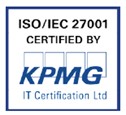ESG Litigation – What Are We Seeing Under the E and Is It the Same as Climate Change Litigation?
25 November 2022
Authors: Anna-Maria Tamminen, Klaus Metsä-Simola, and Anniina Järvinen
Over the past years, one of the main concerns of boards of directors have been environmental, social, and governance aspects of business. Many boards have grappled and continue to grapple with how to advance ESG questions on their agendas. ESG aspects of business is one driver of investor questions but also increasingly subject to private enforcement.
Private enforcement on the E(nvironmental) side has, thusfar, taken the form of environmental, and more specifically, climate change litigation. While climate cases have been brought against municipalities and governments, a multitude of cases have recently also been brought against companies by either NGO’s or the company’s own shareholders.
While climate change litigation cases have been brought on the basis of international agreements, such as the ECT or the Paris Agreement, the European Convention on Human rights, EU legislation, and national legislation, claims against companies have been brought relying partly on the same instruments but tying the claims to fiduciary duties of the companies. Cases against companies would mostly qualify as ESG cases whereas cases brought against public entities, such as governments and municipalities, are often referred to as climate change cases or other environmental litigation.
Cases against companies have been brought by individuals arguing that their livelihood is at risk as a result of the activities of the company, such as in the case by Luciano Lliuya, who brough a claim against RWE AG in Germany. In November 2015, Saúl Luciano Lliuya, a Peruvian farmer, filed claims for a declaratory judgment and damages in the District Court of Essen, Germany against RWE, Germany’s largest electricity producer. While the claim was dismissed in the first instance, the Higher Regional Court of Hamm recognised the claim as actionable and allowed the case to proceed to the evidentiary phase. The case is pending but provides an example of a private enforcement action in which the individual is seeking to hold a foreign company liable for its greenhouse gas emissions in a different jurisdiction.
The most famous case is probably the case brought by Milieudefensie against Shell plc in which the Hague District Court found that under section 6:162 of the Dutch Civil Code, as informed by Articles 2 (the right to life) and 8 (the right to private and family life) of the European Convention on Human Rights (ECHR), Shell was obliged to reduce its group carbon emissions by 45% by the end of 2030 (as compared to 2019 levels). Although subject to appeal and relying on a provision of Dutch law, this case was the first to exemplify how in Europe claimants have successfully challenged the business model of a company like Shell.
ESG claims have also covered a number of disputes brought against companies for misleading portrayal of the climate impact of their products, ranging from bin liners to heating oil, often brought by relying on unfair competition practices. These greenwashing and environmental claims were discussed in more detail in our recent blog post.
Environmental factors also result in product liability claims as products become subject to harsher environmental conditions and claims regarding environmental management practices, waste disposal, or energy efficiency.
Another set of claims that has arisen internationally are cases based on the scrutiny of companies’ internal ESG policies as well as developing rules and regulations. In addition to financial damages, ESG litigation risks have caused challenges to the long and short term plans of companies as environmentally and socially conscious consumers and investors typically seek to achieve changes in the operations of an organisation.
The breadth of cases is likely to multiply. While Finland and Finnish companies have long been protected against E(nvironmental) claims as a result of a lack of a class action system, it is likely that such claims will be brought against both the State and companies by, for instance, NGOs, which have brought claims against companies and governments in other jurisdictions.








